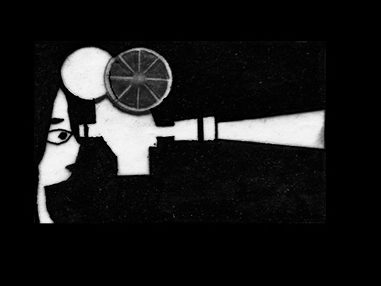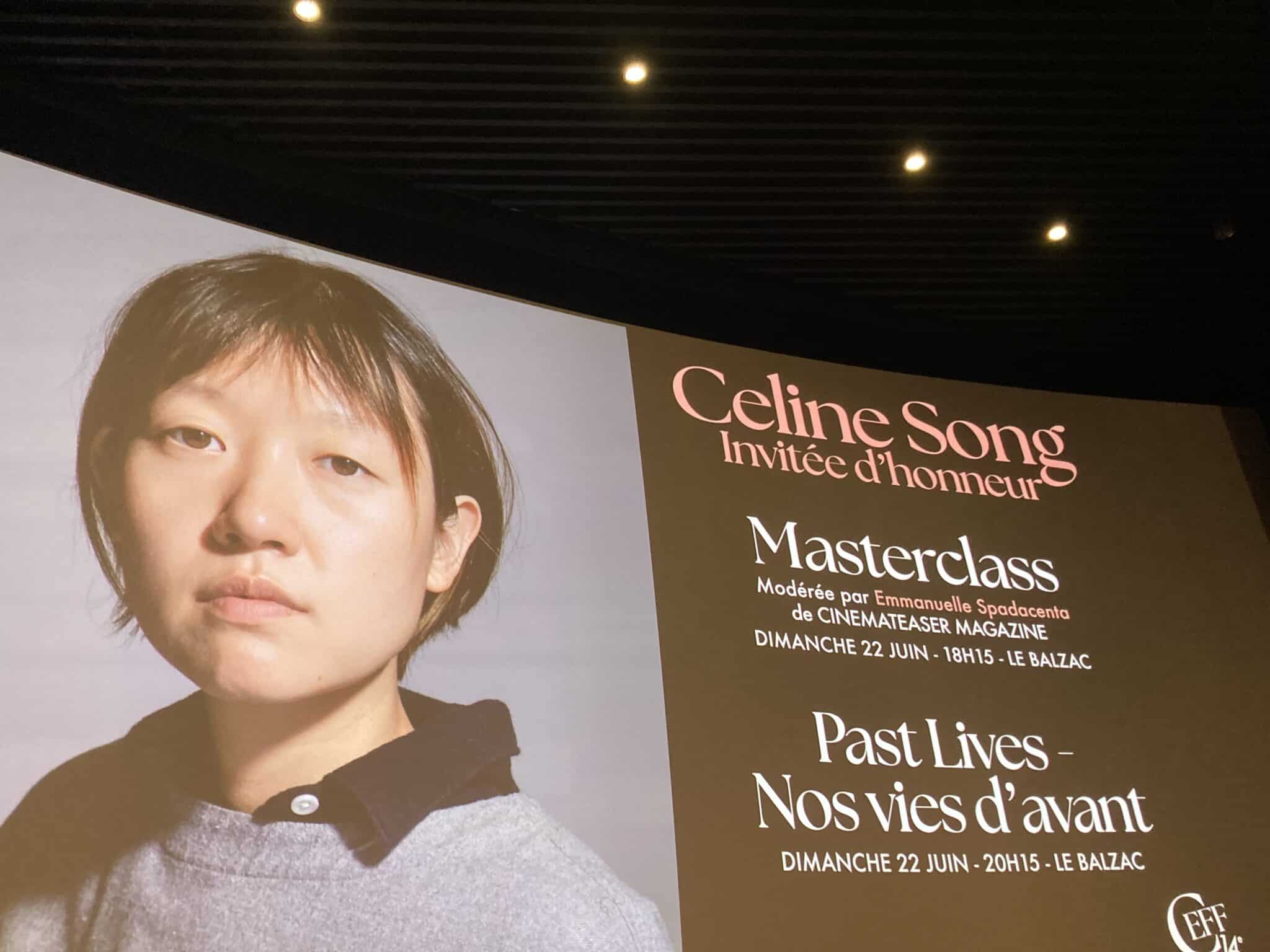Inside Celine Song’s Directing Style: From Past Lives to Materialists
Directing secrets, actor direction, and music in Past Lives and Materialists
At 35, Celine Song has established herself as one of the most distinctive voices in contemporary cinema.
After the critical and commercial success of Past Lives, nominated for Best Picture and Best Original Screenplay at the 2024 Oscars, Song returns with Materialists, a New York-set romantic comedy starring Dakota Johnson, Pedro Pascal, and Chris Evans. Her exceptional masterclass unveils the backstage of a creative process that is both meticulous and instinctive, where the intimate meets the universal.
An Unusual Path: From Matchmaker to Director
“I knew I was a director, but nobody else knew. It was a secret I had, and it was kind of crazy. I had about six months, and during that time, I thought I should figure out what I was going to do.”
Celine Song’s rise mirrors the paradoxes of New York, a city where dreams clash with pragmatism. Born in South Korea, raised in Canada, and later moving to the U.S., she once held a most unexpected job for a future filmmaker: professional matchmaker.
“You have to be either a romantic or a cynic to live there, because life is so expensive.”
Far from anecdotal, this experience feeds directly into Materialists. The film follows Lucy (Dakota Johnson), a cynical matchmaker who treats her work like that of a banker assessing the value of her clients on the love market. Song turns her past into fiction, showing her talent for transforming personal experience into universal storytelling.
“I worked as a professional matchmaker in my twenties because it was the only survival job I could get in New York. Everyone there is chasing their dream, so the survival job market is extremely competitive.”
The Song Method: Foresight and Rigorous Preparation
What stands out with Celine Song is her strategic approach to creation. Even before Past Lives became the critical darling it is, she was already planning her next move:
“I took those six months between the end of Past Lives and its Sundance premiere to write Materialists. During all the time Past Lives was in the works, I knew my next film would be Materialists, and we were already developing it. After the Oscars, the very next day, I flew from L.A. to New York, and the following morning I was in a van scouting locations for Materialists.”
This reveals a director not riding the wave of success but patiently building a coherent body of work. Past Lives already won the Gotham Award for Best Feature, confirming peer recognition.
New York as Creative Laboratory
To Song, New York isn’t just a backdrop—it’s a character. The city embodies the contradictions of modern love that she explores in both films:
“New York is a city where everyone comes to live their passion, so the survival job market is saturated.”
This wry observation sheds light on Materialists’ genesis. Described as a “New York romantic comedy,” the film explores new codes of seduction in a world where even emotions have a price.
Love Philosophy: Materialism and Transcendence
Song’s originality lies in her ability to explore love without naïveté or easy cynicism. Her two films form a coherent diptych on contemporary human relationships:
“Without giving away too much of the plot, Materialists features a heroine who claims to be materialistic and believes that love and money are intimately connected—you can’t avoid money, even in love.”
If Past Lives was “a nostalgic meditation on how we perceive our past relationships through the lens of our current love,” Materialists tackles “the roots of marital connections and how we’ve corrupted this quest.”
“I think it has more to do with who I am as a filmmaker because I feel like someone who makes films about love—a universal theme. If we want to talk about love honestly, we can’t avoid what’s fundamental in human life: the material.”
Pragmatic Feminism and Representation
Celine Song fully embraces her identity as a female director without limiting herself to that label:
“Is it satisfying to portray female characters we’ve rarely seen who own who they are? I think the perspective of a film made by a woman is always marginalized, simply due to the structure of the film industry.”
Her awareness of representational issues is reflected in her narratives. Her heroines—Nora in Past Lives, Lucy in Materialists—are neither victims nor icons, but complex women navigating conflicting desires.
Cinematic Vision: Universality and Cultural Specificity
Song’s perspective reveals an acute awareness of cultural differences in cinematic approaches to romance:
“I was discussing with the studio what it means to sell and show a romantic film in America today. What’s interesting in France is that cinema is about love. I feel French cinema understands that love is a universal theme, one that belongs on the big screen.”
This view shows her balancing act between auteur cinema and mainstream appeal, drawing from both European and Hollywood traditions.
Actor Direction: Precision and Creative Control
Song’s actor direction is defined by a rejection of improvisation:
“I leave no room for improvisation on set. All suggestions are reviewed beforehand.”
What might seem rigid actually frees her actors. By scripting her dialogue meticulously—tested with screenwriters instead of actors to preserve freshness—she allows performers to focus on emotion, not structure.
As she puts it: “The dream of this film is for the audience to claim it personally, for it to stay under their skin.” Achieving that intimacy requires dramatic precision.
Music as Script Extension
“Music is close to the script; it comes right after.”
Song treats the soundtrack as a narrative tool, developed from the script stage. This holistic approach ensures that dialogue, silence, and music all serve the film’s emotional intention.
For Past Lives, she enlisted Christopher Bear and Daniel Rossen from indie rock band Grizzly Bear. Though their music had appeared in films before, this marked their debut as film composers.
The soundtrack—16 tracks totaling 40 minutes—is as thoughtful and bittersweet as the film, subtly enhancing its themes of time and reunion.
For Materialists, she partnered with acclaimed British composer Daniel Pemberton (Spider-Man: Into the Spider-Verse). The score blends existing songs and original tracks, including Japanese Breakfast’s “My Baby (Got Nothing At All).” Released on June 13, 2025 by A24 Music, the album mixes New York soundscapes with materialist concerns—highlighted by Madonna’s “Material Girl.”
Two Complementary Aesthetics
Comparing her two films reveals her versatility: where Past Lives was “ethereal and nostalgic,” Materialists is more direct. Dialogue takes center stage in the world of a calculating matchmaker, while Past Lives thrived on silence and emotional subtext. This duality underscores Song’s artistic maturity and resistance to creative pigeonholing.
Critical and Commercial Impact
Past Lives—an autobiographical drama nominated for Best Picture and Original Screenplay at the Oscars—catapulted Song into the spotlight. Now streaming on Netflix, it continues to reach new audiences.
Materialists is already drawing international buzz, hailed as “a masterclass in weaving deep questions into an emotionally intelligent and engaging narrative.”
Conclusion: A Cinematic Voice to Watch
Celine Song represents a new generation of filmmakers reconciling artistic rigor with broad appeal. Her romantic cinema, free of clichés, opens up fresh narrative possibilities.
Her method—strategic foresight, precise actor direction, early musical integration—builds a recognizable signature in service of universal themes. With only two films, she has already become a major contemporary voice, turning personal stories into collective resonance.
In an industry dominated by franchises and spectacle, Song reminds us that the most powerful stories often stem from lived experience. Her evolution from matchmaker to cinematic storyteller perfectly encapsulates this alchemy between real life and fiction.
With Materialists, Celine Song proves she’s no passing phenomenon but a filmmaker for the long run. Her blend of contemporary clarity and romantic conviction is a breath of fresh air for a genre too often mired in formulas. A career to follow closely.
This exclusive masterclass was part of the 2025 Champs-Élysées Film Festival (CEFF) at Cinéma Paris – Le Balzac.
Moderated by Emmanuelle Spadacenta, Editor-in-Chief of CINEMATEASER MAGAZINE.


